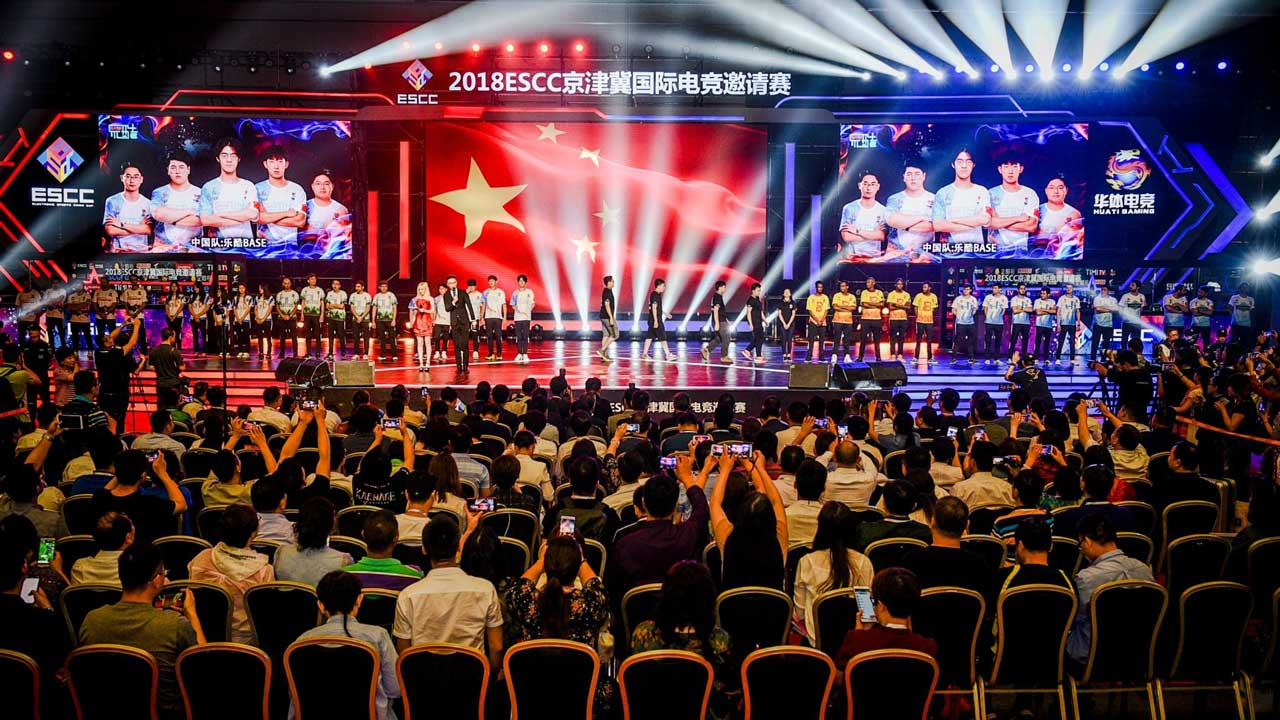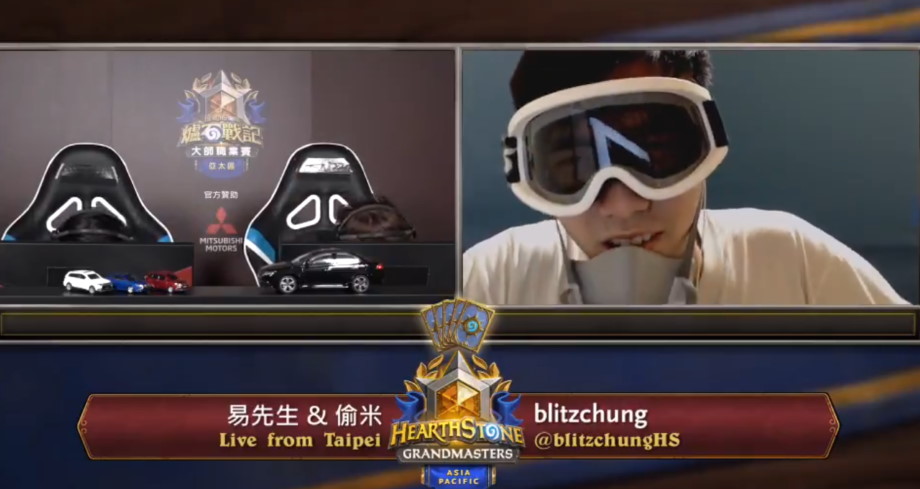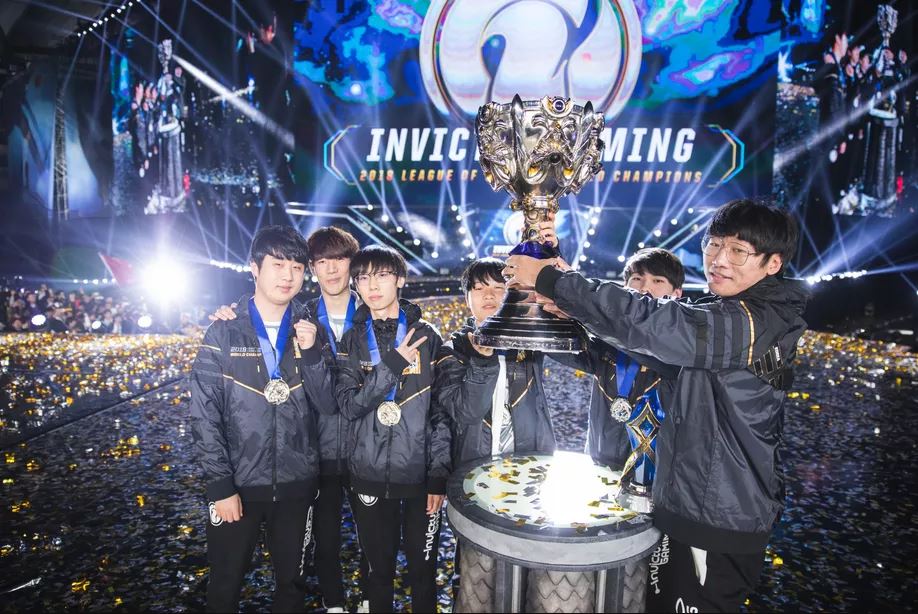Blizzard's dramatic Hearthstone ban is the latest proof that China is too lucrative to piss off
China is now one of the biggest political and economic forces in games, and its influence is still growing.

In 2016, China saved Blizzard's Warcraft movie from being a financial disaster. Warcraft made only $24 million in the US in its opening weekend—on a budget of $160 million, it was dangerously close to being a gargantuan flop. But in China, Warcraft set a record for the biggest film opening of all time, making $156 million in less than a week. This year, Avengers Endgame made more than $600 million in China. In the past week, Steam has served up 65 petabytes of games to US players and 60.8 petabytes to Chinese players. There are something like 312 million PC gamers in China, and even bigger audiences for western movies and pop culture. Popularity in China can be make-or-break for a movie like Warcraft. And for many more games and movies, popularity in China makes the difference between profit and shitloads of money.
Game publishers like Activision Blizzard and studios like Disney are corporations filled with people who love making games and movies and care deeply about their art. But ultimately the corporations they work in exist to turn art into profit for shareholders. And when an opportunity like China presents itself, those corporations will always take the path that leads to shitloads of money.
Blizzard's decision to suspend Hearthstone pro Chung 'blitzchung' Ng Wai for espousing support of the Hong Kong protests during a tournament post-match interview is a reminder that regardless of BlizzCon and the cult of fandom it's built over many years, Blizzard's goal is profit, not a friendship with its fans.
China is a major influence on PC gaming today
It's hard not to see the specter of China—and threatened profits—behind Blizzard suspending Chung for a year and revoking his winnings after he donned a gas mask and said "Liberate Hong Kong, revolution of our age" on a livestream. Chung was referencing the ongoing protests in Hong Kong, and Blizzard ruled his actions a violation of the Hearthstone Grandmasters rules: "Engaging in any act that, in Blizzard’s sole discretion, brings you into public disrepute, offends a portion or group of the public, or otherwise damages Blizzard image."
Blizzard didn't elaborate on the ruling, but any way you interpret the decision, it leads back to how the Chinese government views the Hong Kong protests. Vocally denying or opposing China's sovereignty over Hong Kong, which was a British colony from 1842 to 1997, is never going to be allowed by major game developers who do business in the country. Similar statements, like denying China's sovereignty over Taiwan, will also result in harsh rebukes from the Chinese government and potentially lost business (The publisher of indie game Devotion lost its license in China over a Winnie the Pooh joke at the expense of president Xi Jinping).
This incident is simply the most blatant example that in 2019, China’s influence on gaming worldwide is too big to ignore—or risk being banned from.

That's actually happened to Blizzard before. In 2009, Blizzard decided to switch Chinese partners for World of Warcraft from a company called The9 to NetEase, and as a result had to get the game re-approved by two regulatory agencies. It was offline for months after NetEase jumped the gun, and in the end the company had to pay a fine and issue an apology before relaunching WoW.
Keep up to date with the most important stories and the best deals, as picked by the PC Gamer team.
Regulations in China dictate what games can be published and the contents of those games, which is why so many games have versions uniquely designed to appease Chinese censors. Tencent, for example, shut down PUBG Mobile in China and replaced it with a patriotic alternative, Game For Peace, so that it could monetize the game. Analysts Niko Partners predicted it could earn $1 billion by the end of 2019.
Just as they're beholden to their shareholders, American companies are now beholden to the Chinese government to toe the line.
Because big companies often produce bespoke versions of their games (like WoW) that abide by China's regulations, we rarely think about them or feel their impact in the west. But we are seeing, more and more, how China's political pressure can influence the actions of western game publishers, movie studios, and other corporations at home in the west.
Remember the very bad Adam Sandler videogame movie Pixels, from 2015? Originally, it was going to have a scene where aliens blew a hole in the Great Wall of China. In a leaked Sony email, a Chinese Sony exec wrote that the scene "is actually unnecessary because it will not benefit the China release at all. I would then, recommend not to do it. As to relocating the Pac-Man action from Tokyo to Shanghai, this is not a good idea because it will involve destruction all over the city and may likely cause some sensitivity."
Just this week, the NBA has been facing the same controversy as Blizzard after Houston Rockets manager Daryl Morey tweeted "Fight for freedom, stand with Hong Kong." In response, the Chinese Basketball Association said it would suspend cooperation with the team. Broadcasts of preseason NBA games being played in China are suspended, and the Chinese consulate in Houston condemned Morey's tweet.
The NBA has done its best to backpedal. Where Blizzard's statement simply said Chung had violated its rules, the NBA directly apologized for offending Chinese basketball fans. According to the League, 800 million people in China watched their basketball games in 2018, and NBA China is worth more than $4 billion.

In the first six months of 2019, Activision Blizzard made 12 percent of its revenue—396 million dollars—in the Asia Pacific region. Much of that certainly came from China. SensorTower estimates that Chinese mobile players have helped Hearthstone spending grow, even as US spending declined. They put $51 million into the game in 2018. Esports audiences, too, are huge in China.
Just as they're beholden to their shareholders, American companies are now beholden to the Chinese government to toe the line, because there's simply too much money in China to do otherwise.
But it's not just about governmental pressure: The people have their own voice, too. Just as gamers in the West have review-bombed games for debuting on the Epic Games store or expressing certain political views, Chinese players have review bombed games for lacking Chinese localizations. And they've also gotten political, review bombing Warframe over the dismissal of a volunteer Chinese localizer.
As more games launch and operate online internationally, dealing with localizations, xenophobia in competitive communities, and these kinds of political landmines will be huge challenges.
For big game companies, this is the new normal
The backlash against Blizzard for suspending Chung (and firing the two casters who were also on the stream) has been immediate and intense, and even Blizzard employees have shown their displeasure. As game companies continue to get bigger, and triple-A games grow more expensive to make, they'll perform the same calculus again and again: When there's a controversy, whose anger will cost them more money? Sometimes that will mean making a political statement or standing up for an ideal like free speech. Other times it will mean silence, and not always about China.
For Blizzard, this event won't mean the end of its fandom. THQ Nordic is still happily publishing games after hosting a disastrous interview on 8chan, known for child pornography and mass shooter manifestos. Anger over loot boxes was just a bump in the road for EA, and love for Blizzard runs far deeper than either.
But it is worth reflecting on how the force of the reaction to Battlefront 2 did seemingly cost EA more in game sales and goodwill than it would've made by putting exploitative loot boxes in more games going forward. EA pulled back. Other big games, like Gears 5, have followed suit. It's still going to be possible for public outcries to pressure big companies towards apologies and alternate paths, but only when enough money is on the line. (And in the case of loot boxes, the threat of legislation.)
That kind of systemic change isn't going to happen quickly. But in the short term, we can look forward to another exciting BlizzCon come November 1.

Wes has been covering games and hardware for more than 10 years, first at tech sites like The Wirecutter and Tested before joining the PC Gamer team in 2014. Wes plays a little bit of everything, but he'll always jump at the chance to cover emulation and Japanese games.
When he's not obsessively optimizing and re-optimizing a tangle of conveyor belts in Satisfactory (it's really becoming a problem), he's probably playing a 20-year-old Final Fantasy or some opaque ASCII roguelike. With a focus on writing and editing features, he seeks out personal stories and in-depth histories from the corners of PC gaming and its niche communities. 50% pizza by volume (deep dish, to be specific).

